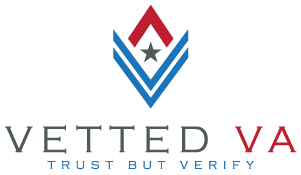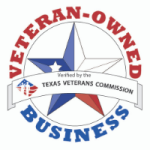What “Estimated Cash-to-Close” Really Means
When buying a home with a VA loan, “Estimated Cash-to-Close” and “closing costs” often get used as if they mean the same thing — but they don’t.
Closing costs include the fees and charges required to complete the loan, such as title, appraisal, and lender fees. Prepaids are items paid in advance — like property taxes, homeowner’s insurance, and prepaid interest.
The Estimated Cash-to-Close is the net amount you actually need to bring to the closing table. It combines:
-
Closing costs
-
Prepaid taxes and insurance
-
Discount points (if any)
-
Down payment (if required)
-
Minus any credits or deposits, like earnest money
Reference: VA Lender’s Handbook, Chapter 8, Section 2 – Closing Costs and Charges.
In other words, it’s the final number after everything is added and subtracted.
Breaking Down the Loan Estimate
The Loan Estimate (LE) is the standardized form lenders must provide early in the loan process. On the first page, you’ll see two similar-looking sections:
-
Estimated Closing Costs — the total of lender and third-party fees
-
Estimated Cash-to-Close — the full amount due at signing
Because these numbers appear close together, it’s easy to mix them up. The Cash-to-Close line shows the true bottom-line amount after credits, prepaids, and any earnest money are applied.
On page 2 of the Loan Estimate, you’ll find a breakdown explaining how each cost is calculated and whether the estimate has changed from prior disclosures.
Tip: The same layout appears again in the Closing Disclosure (CD) — the final version reviewed before signing.
How Earnest Money and Credits Affect Cash-to-Close
If you made an earnest money deposit when your purchase offer was accepted, that amount is credited back to you at closing. It’s subtracted from your total cash-to-close.
You might also see:
-
Lender credits, often used to offset closing costs.
-
Seller credits, sometimes used to help cover allowable fees or prepaids (up to 4% of the loan amount under VA rules).
Reference: VA Lender’s Handbook, Chapter 8, Section 2.d – Seller Concessions Limit.
These credits reduce how much cash you actually need to bring to the closing.
Understanding Prepaid Items and Escrow Accounts
Some parts of the cash-to-close aren’t fees at all — they’re prepaid funds the lender sets aside to cover future bills. These go into an escrow (or impound) account, which ensures property taxes and insurance are paid on time.
Prepaids may include:
-
Property taxes (based on your closing month and due date)
-
Homeowner’s insurance premium (typically the first year paid at closing)
-
Prepaid interest, covering the days between closing and your first payment
These aren’t lender fees — they’re your money, collected in advance to pay real expenses.
Reference: VA Lender’s Handbook, Chapter 10, Section 4 – Escrow Accounts.
Example — How Property Taxes Affect Your Escrow Setup
Property tax escrow depends heavily on the month your loan closes and when your first payment is due.
For example:
-
If your loan closes in September, your first payment is due November 1.
-
Your lender may need to collect several months of property tax reserves in advance so there’s enough in escrow when taxes come due.
Here’s a simplified idea:
| Closing Month | First Payment | Months of Tax Reserves Collected |
|---|---|---|
| January | March 1 | 2–3 months |
| June | August 1 | 6–8 months |
| September | November 1 | 4–5 months |
| November | January 1 | 1–2 months |
This ensures the escrow account has enough to cover your county property tax bill when it arrives — often twice a year.
Key Takeaways
-
Estimated Cash-to-Close = total amount you bring to closing after all credits and prepaids.
-
Closing costs are lender and third-party fees; prepaids are taxes and insurance set aside in escrow.
-
Earnest money and credits reduce your total cash-to-close.
-
VA allows up to 4% in seller concessions toward costs and prepaids.
-
Your Loan Estimate and Closing Disclosure clearly show these details — always review both carefully.
Where to Get Trusted Help
Veterans and VA loan professionals can turn to Vetted VA for verified guidance on understanding Loan Estimates, escrows, and closing disclosures.
Learn More Here:







